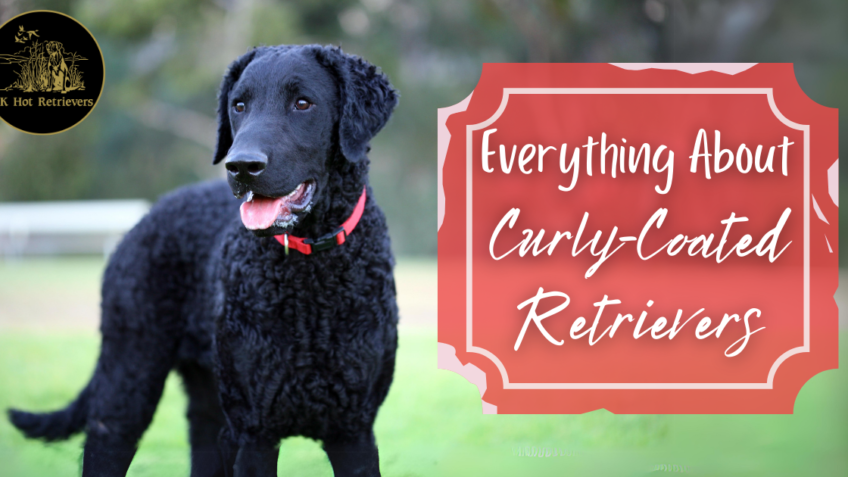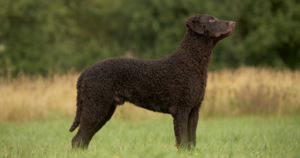Everything You Need to Know About Curly-Coated Retrievers

If you’re considering adding a furry friend to your family or want to learn more about these charming canines, you’ve come to the right place! Welcome into the world of curly-coated retrievers, a breed known for its distinctive curls, boundless energy, and unwavering loyalty. In this blog post, we’ll explore everything you need to learn about curly-coated retrievers, from their history and temperament to their care requirements and more!

History and Origins
Curly-coated retrievers, affectionately known as “curlies,” have a rich history dating back to 19th-century England. Bred as versatile hunting companions, they were prized for their ability to retrieve game from water and land! While their exact ancestry remains a topic of debate, most believe curly-coated retrievers share lineage with other retriever breeds, including the Labrador and Irish Water Spaniel.
Distinctive Appearance
One of the most striking features of curly-coated retrievers is, of course, their curly coat! Characterized by tight, water-resistant curls that cover their entire body, these coats require minimal grooming compared to other breeds. Additionally, curlies boast a lean and athletic build, with expressive eyes and a charmingly mischievous expression that captures the hearts of all who meet them!
Temperament and Personality
Curlies are known for their friendly and outgoing personalities, making them excellent family pets and companions. These pooches’ excelling traits include intelligence and an eagerness to please, and they thrive on mental and physical stimulation! While initially reserved with strangers, curly-coated retrievers are fiercely loyal to their families and form deep bonds with their human counterparts.
Exercise and Training
As active sporting dogs, curly-coated retrievers require ample exercise to engage their bodies and minds. Daily walks, runs, or play sessions prevent boredom and ensure they remain happy and healthy! Additionally, consistent training and positive reinforcement are vital to channeling their intelligence and energy effectively!
Health and Care
Overall, curly-coated retrievers are a relatively healthy breed with an average lifespan of 10 to 12 years. However, like all breeds, they may be prone to certain health conditions, including hip dysplasia and eye disorders. Regular veterinary check-ups, a balanced diet, and proper grooming are essential for maintaining their well-being.
Check out these related blogs for more breed info!
What’s the Difference Between Labrador & Golden Retrievers?